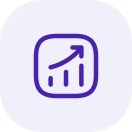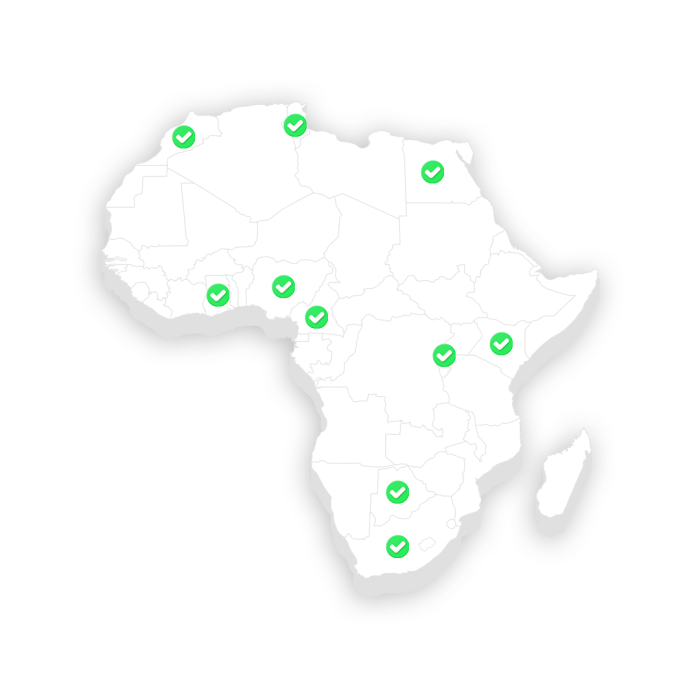As we approach the end of the year 2022 and the start of the New Year 2023, it is not too early for entrepreneurs to start thinking about the best markets for them. While some may want to wait until next year to plan their next venture(s), you can be steps ahead by identifying the best African countries for entrepreneurs in 2023.
Africa is blessed with numerous natural resources that serve as raw materials for a variety of industries worldwide. In fact, Africa is frequently regarded as the world’s raw material deposit. Furthermore, African countries have a thriving young population eager to contribute their skills to these industries. Africa has the world’s largest youth population, and by 2050, its population is expected to double from 1 billion to 2.4 billion, with over 50% of those people being under the age of 25 (World Economic Forum). These metrics indicate that Africa is the future destination for entrepreneurs to invest in and meet talents. Interestingly, global experts think so too.
Starting a business anywhere requires grit, determination, marketable idea, and market intelligence. However, certain economies make it a little bit easier for entrepreneurs to get started. If you’re looking for the best place to start a business, you don’t have to look too far.
The CEOWORLD magazine compiled a report that reveals the best countries in the world for entrepreneurs.
The Entrepreneurship Index ranks 100 economies based on a variety of criteria to determine the “best countries for entrepreneurship.” Innovation, competitiveness, infrastructure, labour skills, capital access, and business openness are all factors in the index. It also serves as the foundation for our list of the best African countries for entrepreneurs in 2023. Tag along.
Why invest in Africa?
African growing economies are critical to global economic development. According to a United Nations Environment Programme report, Africa is abundant in natural resources and raw materials. According to the report, the continent possesses 40% of the world’s gold reserves and 30% of its mineral reserves. Similarly, Aljazeera asserts that Africa holds a strategic position on the global map in terms of oil and natural resources.
Africa is also the fastest-growing continent in terms of foreign direct investment, making it an ideal destination for investors. Investors can benefit from raw materials such as Uranium, Diamonds, Petroleum, Iron, and Gold in Africa.
With all these potentials, the question is no longer ‘why invest in Africa’, but ‘why not invest in Africa?’
Top 10 African countries for Entrepreneurs in 2023
1. South Africa
With a GDP of $419.95 billion and a population of over 60 million people, this country has a very large economy. The country’s infrastructure is well-developed, with efficient financial, legal, energy, telecommunications, and transportation systems. South Africa has an abundant supply of natural resources, as well as well-developed financial, legal, communications, energy, and transportation sectors, as well as Africa’s largest and one of the top 20 stock exchanges in the world. While its tourism potential should not be overlooked, the South African tourism sector is also thriving.
2. Rwanda
Rwanda’s economy has grown at a 7.5% Y-O-Y in Q2 2022. The Sub-Saharan African country ranks 38th in the World Bank’s ease of doing business rankings, with a rating of 76.5. Rwanda also ranks third in the world for ease of property registration, trailing New Zealand and Qatar.
In recent years, the East African country has incorporated the most business reforms in Africa. The nation has put in place electronic systems that have helped to replace its suffocating bureaucracies. Taxpayers can now generate VAT invoices using free software.
3. Morocco
This country is a key player in African economic affairs, and as a result, it ranks 5th in Africa in terms of GDP. Agriculture, tourism, aerospace, automotive, phosphates, textiles, apparel, and subcomponents are all important sectors of the economy.
Survey54 can help you identify the right African countries for Entrepreneurs. Ask us how
The North African country rose from 114th to 53rd in the ease of doing business rankings in less than ten years. Morocco has become Europe’s gateway to Africa, as well as a major financial center.
Experts expect the country expects to grow at a 3.8% annual rate by 2023, with the tourism and manufacturing sectors chosen to drive economic growth.
4. Kenya
Kenya, according to the World Bank, ranks among the top countries in the world for Starting a Business and Obtaining Credit. The country, which ranks 56th in the world, has collaborated with American conglomerate IBM to develop technological solutions that can assist its various agencies in resolving a variety of business issues, including property registration.
Kenya’s economy expanded by 6.7% in 2021, following a 0.3% contraction in 2020. According to the African Development Bank (AfDB), growth was driven by services on the supply side and private consumption on the demand side, both of which benefited from supportive policies and the relaxation of COVID-19 restrictions. The country is also one of the continent’s major ICT hubs, with many large tech startups in sectors such as fintech and transportation.
5. Nigeria
Due to low economic growth and high political risks, Africa’s largest economy may not be as appealing for short-term investment. A lot is riding on the 2023 elections. In February, voters will have a choice between the ruling All Progressive Congress (APC), the main opposition Peoples’ Democratic Party (PDP), and the Labour Party (LP), which has received a lot of social media attention recently. After surviving a recession twice in five years, the country has been struggling to grow its economy. We anticipate that investors will take a “wait and see” approach before entering the market.
Despite dropping one position in the ease of doing business index, Nigeria was among the 46 economies in the world that improved in three or more categories considered by the World Bank in its analysis. Notably, in two states- Lagos and Kano, the time required to register a company at the corporate affairs commission was reduced, and an online platform for paying stamp duty was introduced.
6. Tunisia
Tunisia, currently ranks 78th in terms of ease of doing business, has a 79.04% literacy rate; one of the highest in the world. The country also has one of the world’s youngest populations, with the average Tunisian being around 32.8 years old. This implies that Tunisia has a large number of educated young workers who can channel their energy and resources toward productivity.
Tunisia is primarily an Arabic-speaking nation. Nonetheless, many people are fluent in French and English.
The country is one of the most peaceful countries in North Africa. Tunisia has well-educated citizens, good infrastructure, and a GDP of $46.84 billion. Textiles and apparel, food products, petroleum products, chemicals, and phosphates are among the country’s key exports, with approximately 80% of exports bound for Tunisia’s main economic partner, the European Union. As the business climate improves, structural reforms are implemented, and security and social stability improve, Tunisia will become a country to watch.
7. Ghana
Ghana has a population of approximately 32 million people. Following thirty years of relative stability and good governance, Ghana’s economy is one of the most diverse and powerful in Africa. Natural resources like industrial minerals, hydrocarbons, and precious metals abound in the country.
Real estate prices in Ghana remain affordable unlike other parts of the continent and foreign property ownership is permitted. Accra, Ghana’s capital, is one of the world’s most livable frontier market cities. Ghana’s economy grew for the third consecutive quarter in March 2017, increasing to 66% from 4.4% the previous year. The industry sector experienced the highest growth of 11.5%, compared to 1.8% in 2016, with significant contributions from mining and petroleum: Ghana, one of Africa’s most stable countries on the west coast, is expected to experience 32.7% capital growth over the next five years.
8. Botswana
The country has large foreign exchange reserves, allowing it to weather the pandemic-induced economic storm better than most on the continent.
According to the International Corruption Watchdog- Transparency International, Botswana is one of the least corrupt countries in Africa. Poverty has also reduced and education has spread throughout the country.
Survey54 can help you identify the right African countries for Entrepreneurs. Ask us how
Though diamonds and other minerals account for a large portion of the country’s economy, it has a substantial financial reserve and has developed its manufacturing sector, diversifying the economy. Since its independence from Britain in 1966, the country has had one of the fastest-growing economies in the world, at around 9%. The country’s GDP per capita has also increased from $70 to $14,000, making it an upper-middle-income economy comparable to Chile and Argentina.
9. Cameroon
Cameroon has a mixed economic system, with a mix of private freedom and centralized economic planning and government regulation. The country is a member of the Central African Economic Community (ECCAS).
Cameroon is unquestionably an influential country in the region’s economic and monetary community, owing to its strategic location as a natural gateway into the landlocked region of Central Africa (which includes Chad, the Central African Republic, and northern Congo).
GDP growth accelerated to 3.5% in 2021, up from 0.5% in 2020, thanks to the revival of non-oil activity and continued investment (AfDB).
10. Egypt
Egypt, with a population of approximately 104 million people, is one of the wealthiest countries in Africa, with a relatively stable mixed economy. It has also experienced average growth, averaging 3%-5% over the last quarter-century. There have been many developmental stages in the economy where the public and private industries played roles that benefited the country’s economy. Since 2000, the pace of structural reforms, such as fiscal and monetary policies, taxation, privatization, and new business legislation, has aided Egypt’s transition to a more market-oriented economy and increased foreign investment.
Do you require an expert guide to walk you through the best African countries for entrepreneurs as we approach the New Year 2023? Contact Survey54 for a step-by-step guide on how to invest and thrive in Africa.











